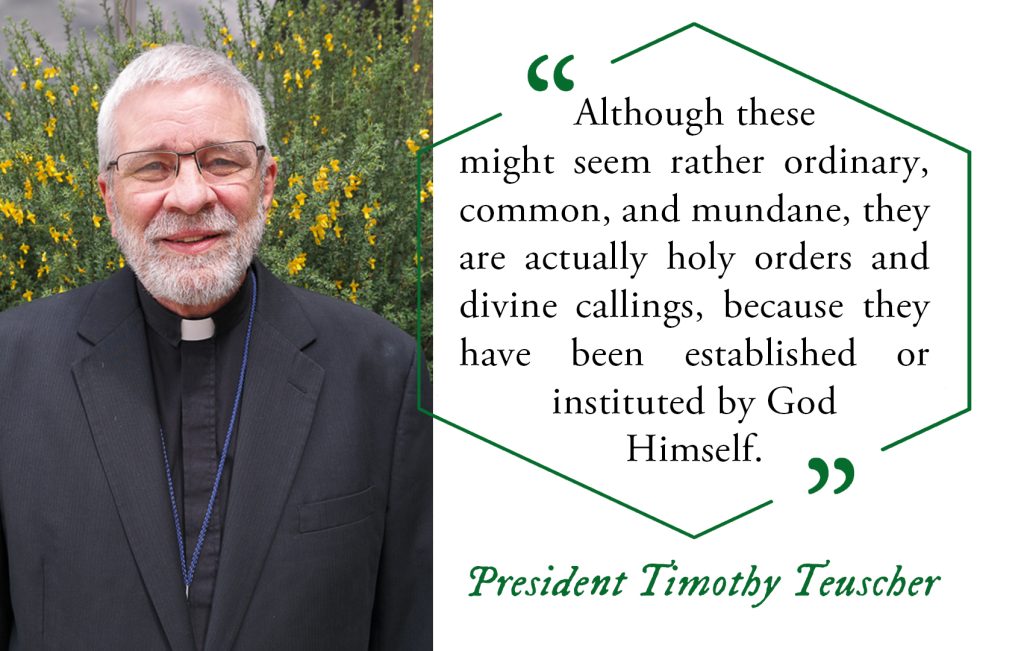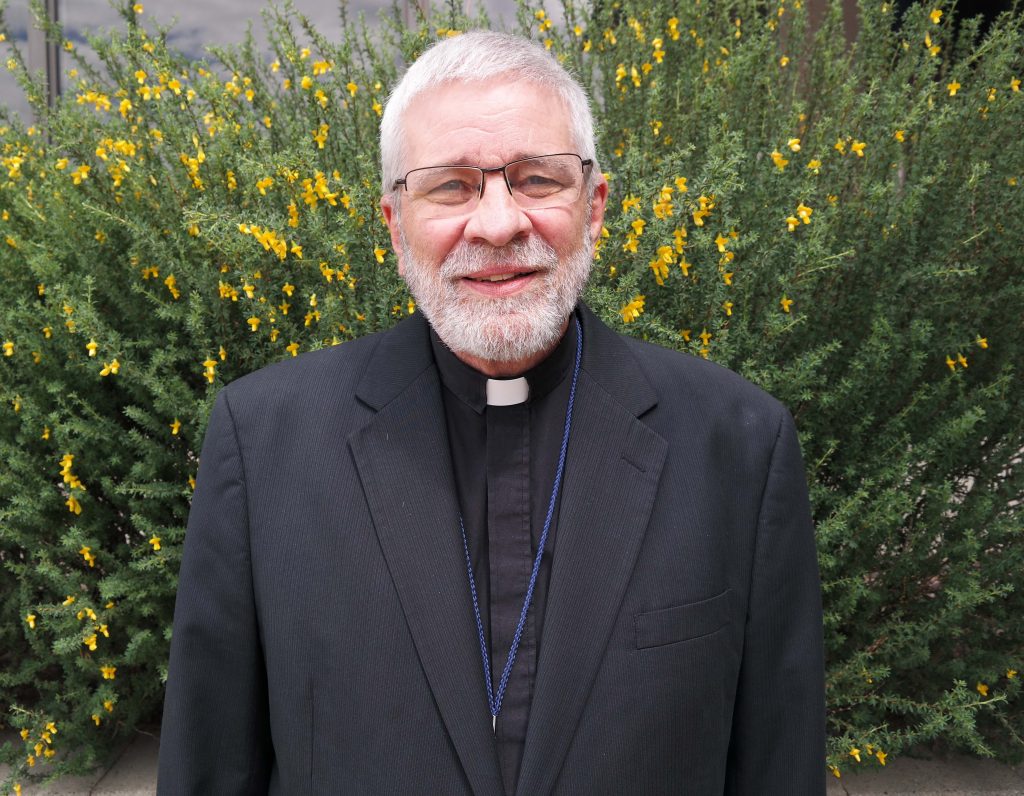What is Your Holy Calling?
 by Timothy Teuscher
by Timothy Teuscher
In the first section of the Small Catechism, which contains the familiar six chief parts of Christian doctrine, we read these words: “Confession has two parts. First, that we confess our sins, and second, that we receive absolution, that is, forgiveness from the pastor as from God Himself.”
It then goes on to ask: “What sins should we confess?” To assist us in this regard, it gives this answer: “Consider your place in life according to the Ten Commandments.” But what, exactly, is your “place in life”—that is, your holy calling? The much-neglected and often-overlooked third section of the catechism entitled ‘Table of Duties’ answers that by setting forth “certain passages of Scripture for various holy orders and positions, admonishing them about their duties and responsibilities.”
What are these holy orders to which we have all been called by God, these positions in which we have all been placed? Well, in the Church there are, when all is said and done, just two holy orders: preachers of the Word (which I focused on in a previous column) and hearers of the Word. In the home there are husbands and wives, parents and children. In a nation there are government officials and citizens. In society there are employers and employees, along with young and old and neighbours. Although these might seem rather ordinary, common, and mundane, they are actually holy orders and divine callings, because they have been established or instituted by God Himself. Let’s consider a few of them.
In the Church we have all been called, by virtue of our baptism into Christ, to be hearers of His Word. Why is this so important and necessary? Why is this, in effect, our highest and most important calling in life? Quite simply, as St. Paul writes: “Faith comes from hearing, and hearing through the Word of Christ” (Romans 10:17). Or as our Lord Jesus says: “Blessed are those who hear the Word of God and keep it” (Luke 11:28). And again: “Whoever hears My Word and believes Him who sent Me has eternal life” (John 5:24). Now, this holy calling as hearers of the Word has a number of related duties: for instance, to assemble often and regularly with other hearers of the Word (Hebrews 10:25); to support the preaching and teaching of the Word with our monetary offerings (1 Corinthians 9:14; Galatians 6:6); to pray for and support the spread of the Word of Christ to others (Colossians 4:3-4; 2 Corinthians 9:12-13); to pray for and provide for more servants of the Word (Matthew 9:38); and to maintain the place where the Word of Christ is preached and taught (Psalm 26:8; Haggai 1:7-8).
Although these might seem rather ordinary, common, and mundane, they are actually holy orders and divine callings, because they have been established or instituted by God Himself.
In the home husbands have the holy calling to love their wives just “as Christ loved the church and gave Himself up for her” (Ephesians 5:25). Wives have the holy calling to “submit to your husbands as to the Lord” (Ephesians 5:22). Parents have the holy calling not only to provide for the physical welfare of their children, but above all to “bring them up in the discipline and instruction of the Lord” (Ephesians 6:4).
In our nation we all have the holy calling as citizens to pray for government authorities (1 Timothy 2:1-2); to honour them as God’s representatives (1 Peter 2:17); to pay taxes (Romans 13:7); and to obey authorities (Romans 13:1), provided that what they command is not contrary to God’s Word (Acts 5:29)— like, for instance, on abortion on demand or same-sex marriage or medical assistance in dying.
And in society in general we all have the holy calling, to use the words from the catechism explanation of the Fourth Petition of the Lord’s Prayer, to be “good friends and faithful neighbours.”
The Augsburg Confession sums all this up in these words: “The true order of God (is) that everyone, each according to his own calling, manifest Christian love and genuine good works in his station in life” (AC XVI.5). And it is in the midst of faithfully abiding in our various holy callings that St. Peter says this: “Always be prepared to make a defense to anyone who asks you for a reason for the hope that is in you; yet do it with gentleness and respect” (1 Peter 3:15). Do so in order that others might also become part of that holy order called ‘hearers of the Word.’
 ———————
———————
Rev. Dr. Timothy Teuscher is President of Lutheran Church–Canada (LCC).




